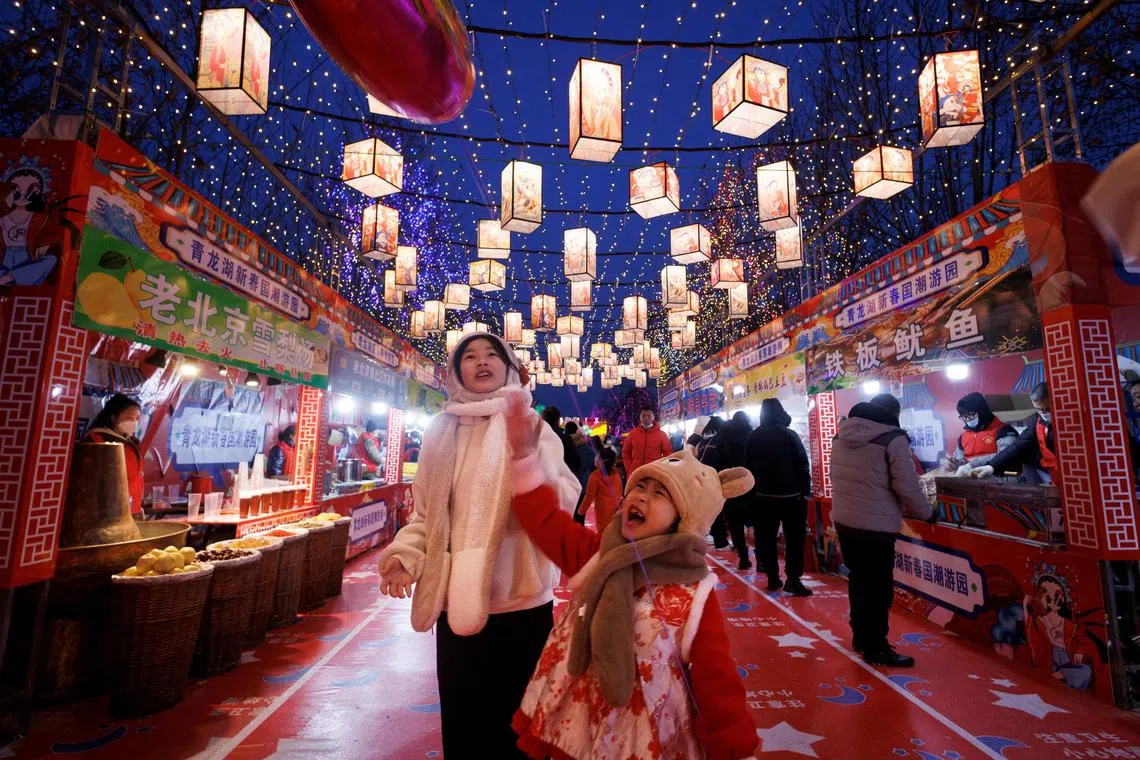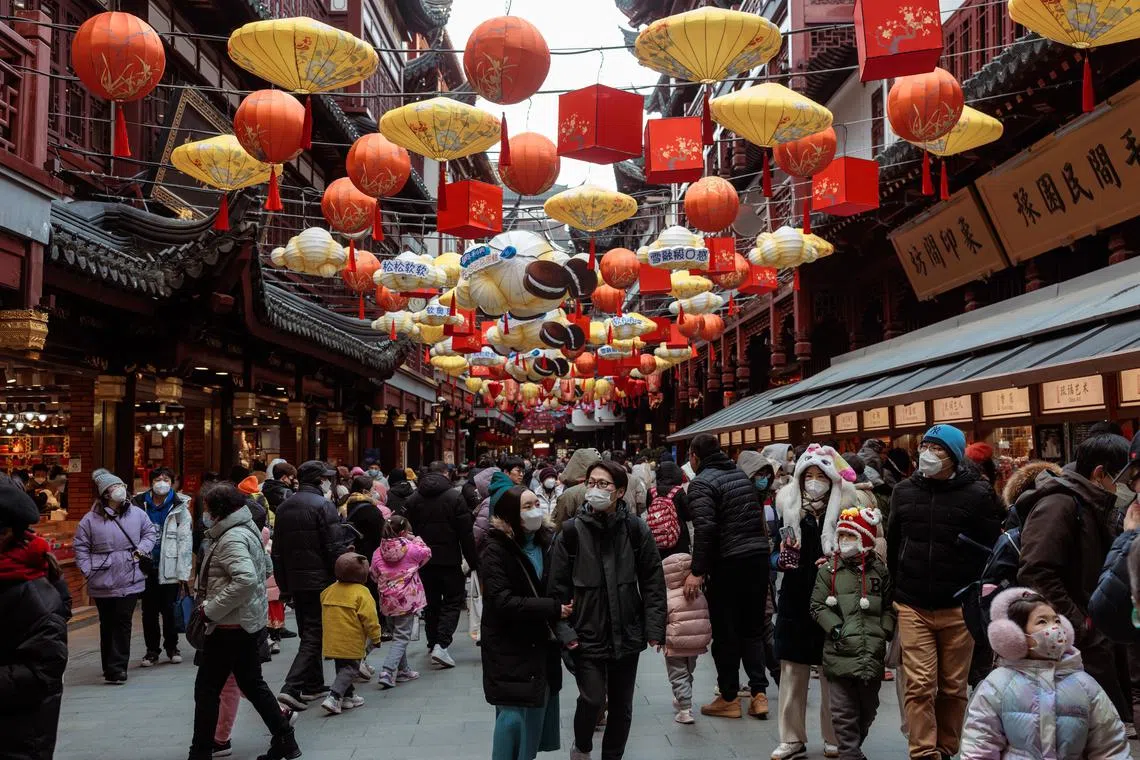Potential Covid-19 wave in China does little to dent Chinese New Year festivities
Sign up now: Get insights on Asia's fast-moving developments

People walk through a part of a Spring Festival light installation in Qinglonghu Park in Beijing.
PHOTO: REUTERS
BEIJING - At the Qinglonghu Park in south-west Beijing, hundreds braved the winter cold just for a chance to wait in line to enter a temple fair – an outdoor event of stalls with food, games, trinkets, and even cultural performances.
A mainstay of Chinese New Year festivities in the city, such fairs have returned after a three-year Covid-19-induced hiatus.
As children munched on candied fruit while adults browsed Spring Festival trinkets, gone were the pre-recorded instructions to socially distance, along with contact tracing QR codes at the entrance of every public venue.
But even as life lurches back to normal across the country, there are still reminders of the past three years at every corner – abandoned testing booths, public health propaganda signs still stuck to walls, and importantly, the masks that have become a required part of daily life, indoors and on public transport.
Looming over the week’s festivities is yet another potential Covid-19 wave that could come on the back of the world’s largest human migration.
Still, this has not dampened the festive mood. There have been multiple reports of attractions across the country having to turn away visitors due to overcrowding.
On Thursday at the Badachu Park west of Beijing, a hilly tourist attraction known for its eight monasteries, crushing queues formed in sub-zero temperatures around temple entrances where metal barriers had been enacted for crowd control.
Madam Feng Ling, who was with her son, daughter-in-law and three-year-old grandson, said they had driven about 20 minutes from their Shijingshan home to soak up the atmosphere. They were waiting in line to enter a temple to pray for a peaceful year ahead.
“It’s something we haven’t experienced for a long time and I wanted my grandson to have a taste of what the Spring Festival is really like, not just staying at home and watching television or staring at mobile phones,” the 58-year-old told The Straits Times as music blasted in the background.
The family had all been infected with Covid-19 during the first wave in Beijing in early December, and were confident that they would be immune for the next few months.
But they had all kept their masks on even while outdoors, not because they were worried about the virus but simply because of the cold, Madam Feng said.
In other Beijing parks, such as the Botanic Gardens, the face coverings have also stayed on, despite the authorities repeatedly insisting that the worst is over.
Last weekend, a prominent government scientist said that with 80 per cent of the population already infected
It was followed on Wednesday by data from the Chinese Centre for Disease Control and Prevention (CDC), which said the number of new infections peaked between Dec 22 and 23, at over seven million daily.
Those critically ill went from a high of 128,000 cases on Jan 4 to 36,000 by Monday.
Deaths in hospitals reached a daily peak of 4,273 on Jan 4 to 896 on Monday. The authorities previously reported 60,000 deaths from Covid-19 in hospitals alone between Dec 8 and Jan 12.
Since China abandoned its zero-Covid policy on Dec 8, mandatory nucleic acid testing has been scrapped. In its place is an app for voluntary uploading of antigen test results, and 15,000 new infections were reported on Monday.
But critics say the numbers are opaque and many who have little or no access to test kits, especially in the rural areas, go unreported, while some doctors have claimed they were discouraged from reporting deaths linked to Covid-19. Funeral homes and crematoriums have also reported being overwhelmed, with some families waiting up to three months for their loved ones to be processed.
Yet, many are determined to celebrate their first Chinese New Year in three years without strict pandemic curbs.

People walk around the Yuyuan Garden in Shanghai, on Jan 14, 2023.
PHOTO: EPA-EFE
Anhui native Song Jie, 26, has returned home for the first time in nearly three years.
He was working in Wuhan when the city went into lockdown in January 2020, and had been unable to visit his family because of the uncertainty from Covid-19 policies and the high cost.
“My grandparents are elderly, so they have only one shot of the vaccine. But they said that we’ve waited long enough for a reunion, everything will be worth it,” he said.



